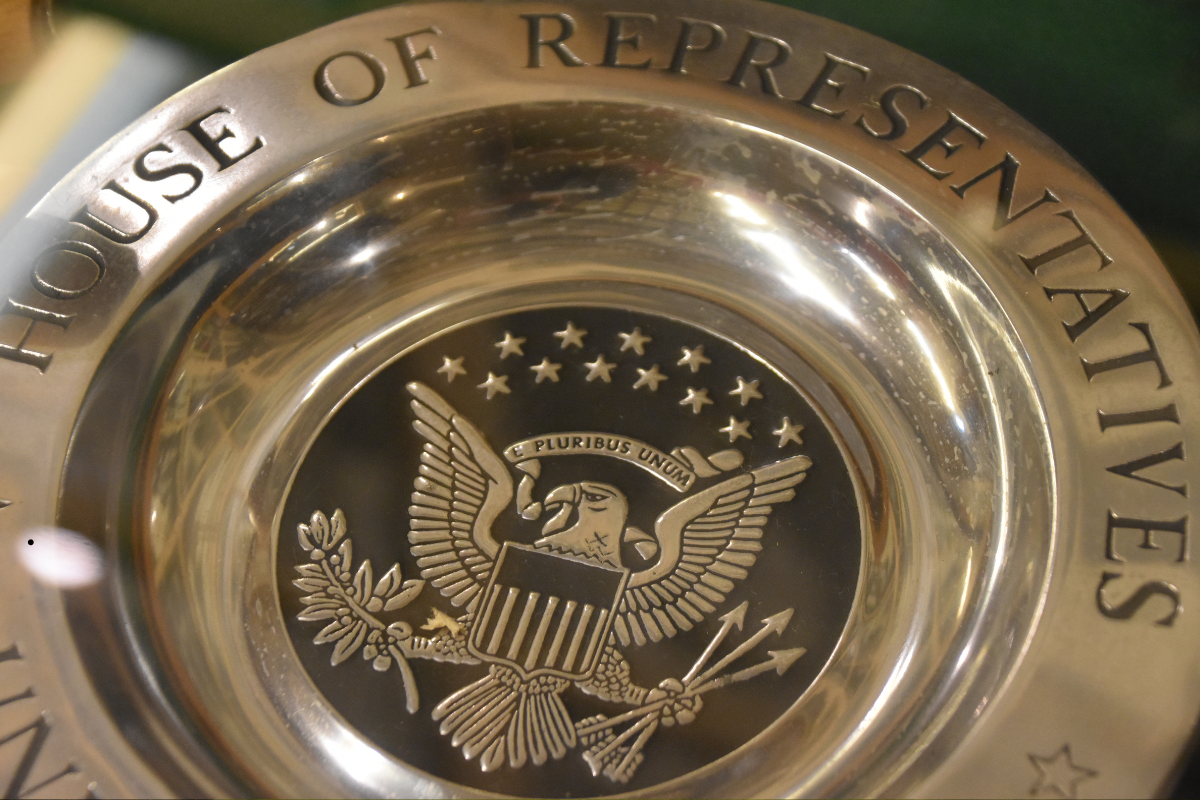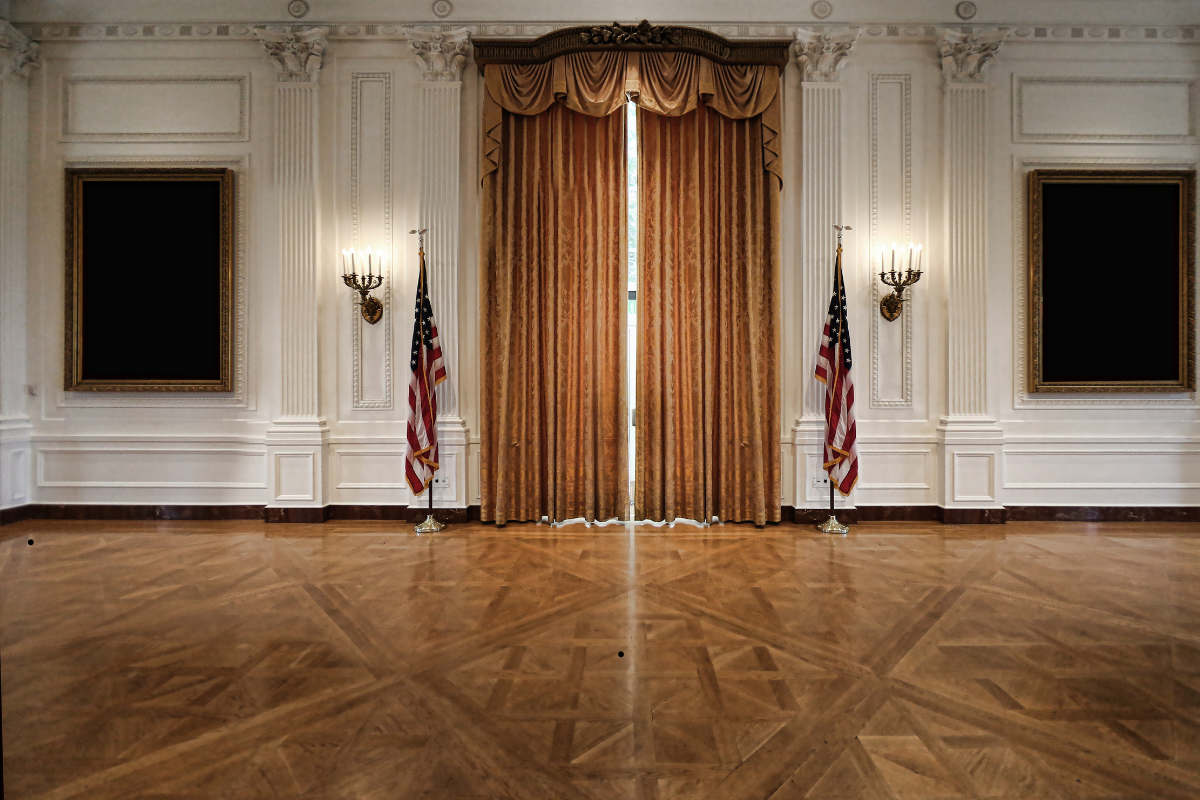Federalist 56
Although Madison claimed in Federalist 56 that he was dealing with a new Anti-federalist objection to the system of representation, the focus was still on the ratio of representatives to constituents. Having insisted earlier that the problem admits of no exact solution he once again offers experience as the proper guide. In #55 he opined that the states varied so much in their proportions that they offered little assistance to the solution, so in #56 he turned instead to the example of the British Parliament, insisting their years of trial and error got the numbers about right, not coincidentally fixing the ratio at about 30,000:1 (citizens to representatives).
I reviewed the arguments concerning that ratio in my last two essays and need not repeat them here. In #56 Madison pushed his argument in an interesting direction whose relevance remains. The first thing he attempted was to diminish the significance of the complaint that there were too few representatives by suggesting that the issue of representation wasn’t a significant one as pertained to the federal legislature, and this for two reasons: first, because the federal legislature had few and defined powers, the bulk of them remaining with the states; and, second, because Congress would be dominated by the interests of states and not citizens. The federal legislature was to act not only as a clearinghouse of state interests but primarily as a reconciler of the state’s differences. Unlike Hamilton’s repeated arguments that the key to the system was that federal power had to act directly upon individual citizens, Madison here argued that its powers would be largely limited to interstate issues. We see here the seeds of Madison’s later argument in the Virginia Resolution that the federal government had overstepped its legitimate powers in the Alien and Sedition acts, claiming that not only could its power impose directly on citizens but that states could interpose themselves between the federal government and citizens.
Representation and Knowledge
In considering the problem of representation Madison raised an interesting question: what exactly does a representative need to know and to what end does he need to know it? Given that the great bulk of issues of political life were to be tackled by local and state governments, what would be left for the federal government to do? The main objects of government, he claimed, concerned taxation, commerce, and the militia, issues that were in the main the concern of the states (although we once again see a crack here in the uniformity of Publius’s argument, Hamilton having offered more expansive views of the three objects). At the federal level only certain kinds of taxation and commerce would be relevant for the federal government.
Madison’s line of inquiry suggested the importance of local knowledge in governance. Those closest to the problem are the ones tasked with solving it. Only people deeply connected to a place and its people should deliberate about that place’s particular fate. Given the fine-grained powers of local and state governments, representatives in those assemblies needed a close connection to the people; but the federal government required no such intimate knowing, the end or purpose of such knowing not only shifting the terms of what a representative needed to know but also altering the equation in terms of how many representatives were necessary.
Here Madison introduced an idea that we struggle with still: to what degree does “expert” knowledge replace “personal” knowledge? How much should otherwise free citizens defer judgment to persons possessed of authority? Note well that in Madison’s mind the question of authority was closely connected to the question of knowing. In our daily life we will often defer our authority to that of an expert when we possess a deficit of knowing. We tend to take our doctor’s judgments concerning our physical health over our own, or our financial advisor’s with our money, or our mechanic’s with our cars, or our plumber’s with our pipes. Such deference typically takes place in freely chosen relationships that are largely transactional, even if they require at least a modicum of trust to function well.
Deficits of Knowing
We constantly try to correct our knowledge deficits. Not eating food we produced ourselves we put date stamps on food in an effort to determine its freshness.. We will look at reviews such as Consumer Reports in an effort to cut-through the bewildering array of choices we face when it comes to purchasing consumer goods. We will look at online reviews to find a reputable tradesman or professional since we can no longer count on strong institutions of civil society to be reliable relayers of such information (“Everyone in church knows that Bob is a good plumber who charges a fair price and that Sam bilked a bunch of parishioners in his butcher shop, having sold them some bad meat at an unfair price”). In an atomized and hypermobile society these sources of information wither, leaving us increasingly at the mercy of “experts” and anonymous reviewers.
Which might be okay if we had some way of pushing back against the experts if their claims clash strongly with our interests. Note that in civil society the relationships are not only transactional in a limited sense but also reciprocal, and reputation results from these reciprocal arrangements. In such a society reputation not only matters to people but is clarified and sustained by actual conduct. Electricians don’t have campaign managers and consultants who teach them how to convince potential customers that they should trust them even though they have no intention of delivering on their promises. In a localized world being true to your word is not simply a matter of honor but also survival; but in an expansive one it becomes one option among many in part because there are no serious consequences to promise-breaking.
Rule by Experts
To return, then, to Madison’s argument: it might be the case that federal representatives would lose contact with their constituents, but this wouldn’t pose that great of a problem because those representatives would have limited capacity – to use an apt but artless phrase – to screw people over. #56 is an interlude between numbers 55 and 57 where Madison talked about the virtue of politicians. Here, however, he placed more confidence in their limited authority, the lack of knowledge proving a prophylactic against abuses of power.
While a small proportion of representatives to constituents mattered at the state and local level – again, where the issues of commerce and taxation and “the militia” would largely be handled – it was not required at the federal level, where “a very few intelligent men” could figure out the logistics of reconciling differences in state laws. Legislators would not need to know the particularities of place because they would be dealing with policy at a far more abstract level. The job of federal legislation could be done by a bespectacled, cubicle-dwelling wonk pulling pens from his pocket-protector:
“In every State there have been made, and must continue to be made, regulations on this subject which will, in many cases, leave little more to be done by the federal legislature, than to review the different laws, and reduce them in one general act. A skillful individual in his closet with all the local codes before him, might compile a law on some subjects of taxation for the whole union, without any aid from oral information, and it may be expected that whenever internal taxes may be necessary, and particularly in cases requiring uniformity throughout the States, the more simple objects will be preferred.” [Emphasis added]
Part of the issue, in Madison’s mind, was that the individual states were at different levels of “development.” Some states were stuck in time as a basic agricultural economy while others had “advanced” in industry and commerce. Since agriculturally-based economies were basically “simple” ones and industrial and commercial economies “complex,” the operations of the federal government would remain relatively simple until such time that industry and commerce would replace agriculture as the mode of economic activity for most citizens. At that point the greater complexity of the economy would require greater levels of federal control. Those shifts in economy, meanwhile, would also likely lead to increases in population (even though anyone thinking that financial analysts produce more children than farmers do might want to reevaluate such assumptions), and the Constitution had provided for those increases by allowing for increases in the size of the legislature. Convinced that the 30,000:1 number was right, Madison seemed equally convinced that the federal legislature could maintain that ratio while accommodating population growth.
Madison realized that the states would “increasingly assimilate to one another,” by which he meant they would not only become increasingly interdependent but increasingly less distinct culturally and economically. (He was mercifully spared the advent of mass media and mass entertainment — talk about threats to democracy!) Such assimilation would necessarily affect the system of representation, but not, he seemed to argue here, the structure of knowledge required for legislators, and thus not the nature of the relationship between citizen and representative. This strikes me as a serious failure of imagination and analysis on Madison’s part. Having conceded that legislation could be done “in a closet,” that is, removed from engagement in the lives of the people affected, Madison made no adjustment for the deadening homogenization of American economic and cultural life. This homogenization, in turn, not only changed the purpose of legislative knowing but also the expanse of legislative power, which increased with no adjustment being made to the very technical mode of knowing Madison assumed was alone relevant. Legislators remain in their closets but the “more simple objects” have disappeared, replaced by enormously complex ones.
The implied rift between representatives and citizens has now borne out in a situation where voters are deeply cynical concerning the people they elect to national office. Anti-federalists realized that the rift was baked into the Constitutional system, justified by Madison’s confident assertions that localized knowledge and immediate participation were not necessary to the exercise of legislative authority. Madison believed that Congress would be largely populated by “a very few intelligent men,” and he turned out to be more right and the consequences more pernicious than he could possibly have realized at the time, .
Director of the Ford Leadership Forum, Gerald R. Ford Presidential Foundation
Related Essays




